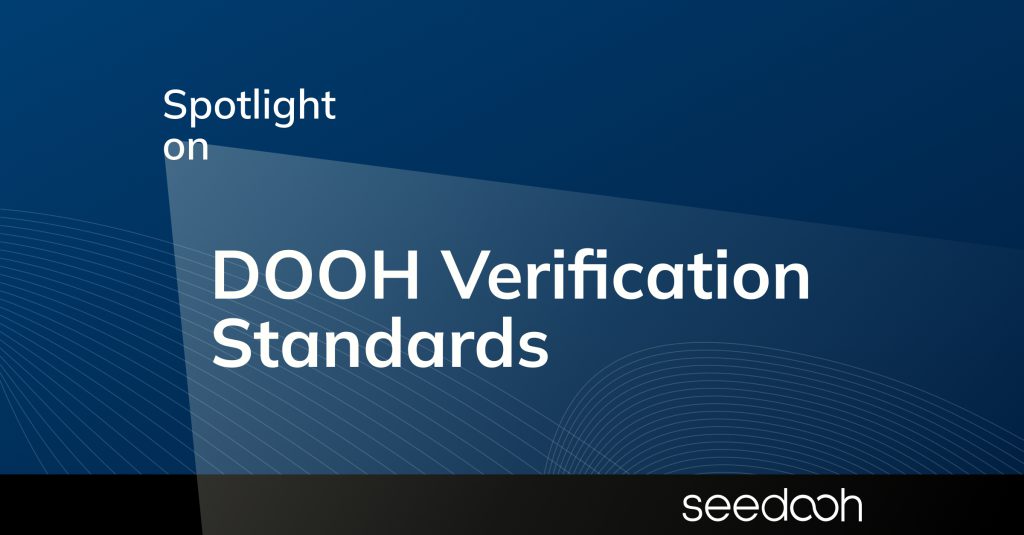
Welcome to a world with Out-of-Home Verification Standards.
Recently, D/OOH Verification Standards have been agreed and published in TWO markets; Australia and New Zealand.
Sector performance figures for Q1 2024 highlight OOH revenue growth of over 9% in both Australia and New Zealand, with DOOH now registering 74% and 78% of total revenue respectively, by market. These are globally leading numbers. And they are testament to the success of long running, significant and co-ordinated investments of effort, time (and money) in assets, data, systems and processes which enable the sector to compete more vigorously with – and more seamlessly complement – other media channels.
Most Brands like using OOH – and it’s never been easier to justify budgets and execute campaigns for this increasingly valuable part of the media plan. As a result, OOH’s share of total media budgets is also growing fast, in this part of the world.
Accountability in delivery has long been viewed (by all parties in ANZ) as a hygiene requirement – just one connected component of this complex evolution. Third Party Verification (TPV) has been available at scale for about 7 years now, firstly via Seedooh’s highly secure API integrations, then later via other TPV’s, preferring a methodology similar to #online verification, using ‘tags’ or ‘pixels’ in DOOH.
But it hasn’t been easy, or quick, to arrive at Verification Standards that are agreed at industry level by both the buy- and sell-side participants. In fact, there has been some quite intense debate over the last few years.
The key points for DOOH, which are common to both Australia and New Zealand, are that:
- In the event of a dispute between TPV data and the log-level data from the system which served the ads to the screen (the ‘player’ component of the CMS) – the source of truth (to settle the dispute) is the system-event data from the player.
- A 4 step dispute resolution process is in place for any occasion where the data-sets do not initially match, to assist in resolution, as above.
These points are illustrative of the recurring challenges that TPV commonly brings in the early stages of an accountability focus on DOOH play-out, where methods born in #online are not always accurate.
Seedooh’s independently verified data is always on and ALWAYS matches the system log data exactly, meaning that all parties using Seedooh to verify and support their campaign delivery don’t need to deal with data disputes. Instead, the in-flight focus is immediately on addressing any delivery issues as they arise.
The frequency and nature of the delivery issues varies widely, depending on the number of formats used and the complexity of the campaign. As a rule of thumb, Seedooh Campaign Analysts are calling out discrepancies between the plan and real world delivery in about 30% of verified campaign weeks in Australia and New Zealand. (This statistic excludes over-delivery, which is prevalent in most campaigns – and enhanced by live campaign monitoring and swift resolution of issues. Seedooh also verifies and quantifies such overdelivery, of course, but we don’t call it out as something that should be swiftly addressed, unless it breaches geographic, time-based or exclusivity parameters).
The outcomes of always on, always accurate TPV are:
- Firstly and most demonstrably – better delivered campaigns due to rapid resolution of identified issues.
- Secondly, less stress on the people managing the campaigns (both sides), as everyone has complete confidence in the real time data. So… even better delivered campaigns, with more time to focus on important things like targeting, measurement, innovation, creativity and insights for improved planning, buying and execution.
- Thirdly, more confidence that OOH campaigns are delivered better, so even more favourable consideration of OOH amongst the complex options for brands seeking optimal media investment solutions.
Well done to the buyers and sellers in New Zealand and Australia for aligning on logical conclusions, so that they can be more focussed on better campaigns for their customers.
And hello to the teams and clients of Omnicom Media Group in New Zealand, who have recently partnered with Seedooh for OOH Verification.